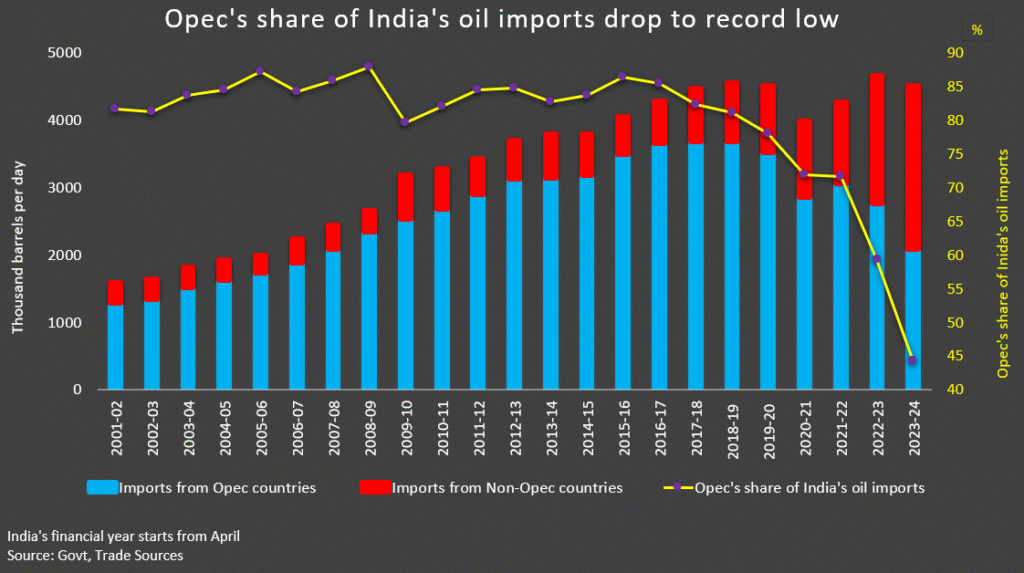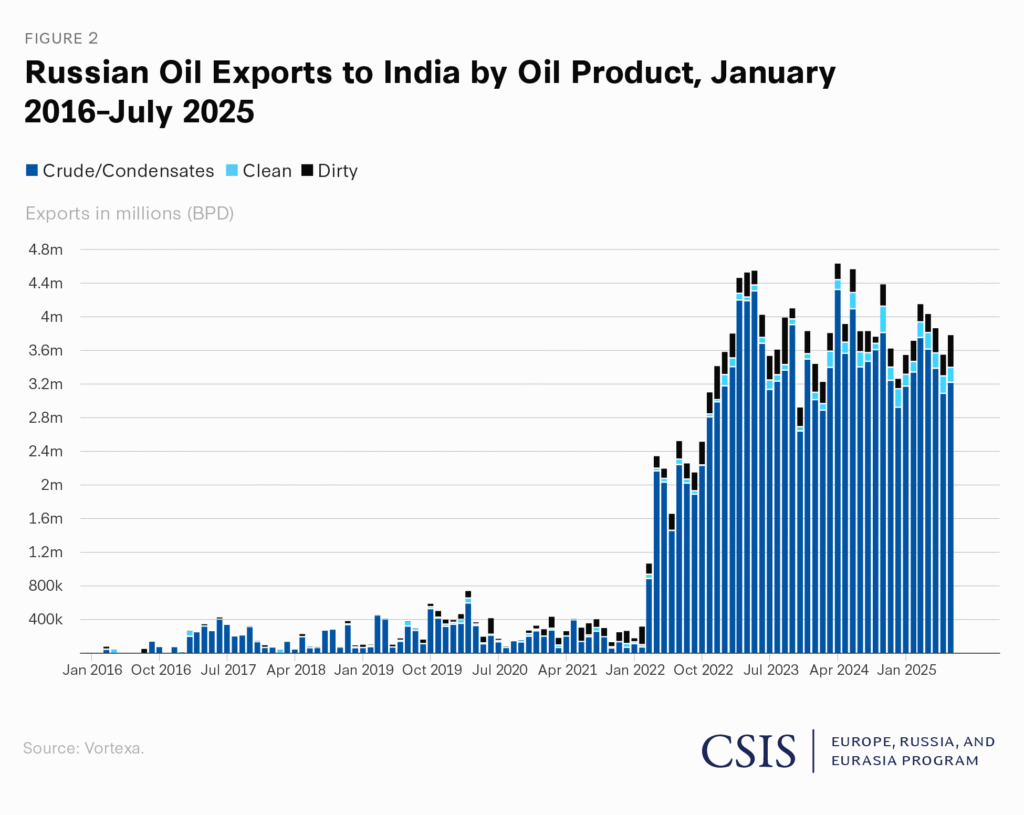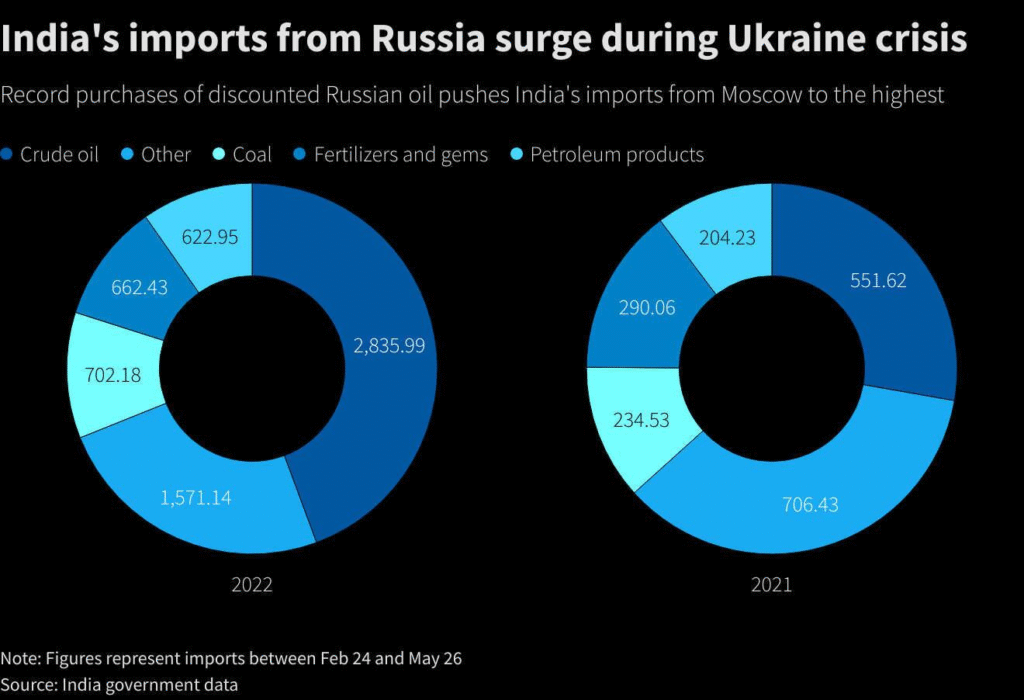India prioritises consumer interests in oil and gas imports, says MEA in response to global concerns, reaffirming its energy policy stance amid Trump’s remarks on Russian oil
New Delhi: India prioritises has strongly defended its energy procurement policy in the wake of public comments by U.S. President Donald Trump regarding Russian oil imports. The Ministry of External Affairs (MEA) reiterated that New Delhi’s import decisions are guided by two primary goals: ensuring energy security and protecting the interests of Indian consumers.
The clarification comes amid pressure from the U.S. and renewed global focus on India’s trade with Russia. Trump recently claimed that Prime Minister Narendra Modi had assured him India would cease purchasing oil from Russia — a statement the Indian government has neither confirmed nor accepted at face value.
Context: Why This Is Making Headlines
Trump’s Claim & U.S. Pressure
On October 15, 2025, President Trump announced that Modi had “pledged” to stop India’s Russian oil imports — framing it as a major move against Moscow’s war in Ukraine. The claim drew global attention and forced India to respond amid scrutiny over its energy choices.
Trump has also warned of raising tariffs or taking punitive measures if India continues buying from Russia.
India’s Role in Russian Oil Trade
India is one of the largest buyers of Russian crude. In recent years, especially after the Ukraine conflict, India has increased Russian oil import volumes, taking advantage of deep discounts offered by Moscow. Some estimates place Russian oil at ~30‑40% of India’s crude import mix.
However, this has also drawn criticism from the U.S. and the European Union, accusing India of indirectly aiding Russia’s war economy or profiting from the price differential.

MEA’s Response: Themes & Key Messages
1. Consumer Interests as Top Priority
The MEA emphasized that energy import policies are structured “entirely to safeguard the interests of the Indian consumer.” The government argues that cost stability and access to affordable energy are non-negotiable in a country with vast energy demand.
The ministry called Trump’s assertion about Modi’s pledge “inaccurate and misleading,” insisting India had not committed to halting Russian transactions.
2. Energy Security & Diversification
India asserts that the twin goals of its energy policy are:
- Stability in supply — ensuring that the nation can reliably access fuel, gas, and energy even in volatile global conditions.
- Affordability for consumers — avoiding sharp price spikes that could disproportionately affect low- and middle-income households.
The MEA also stated that decisions in energy procurement are guided by market conditions, and that India has been actively engaging to broaden its sourcing wherever feasible.
3. Rebuffing Accusations & Highlighting Double Standards
India struck back at what it called “unjustified and unreasonable targeting” by the U.S. The MEA pointed out that many of the same countries criticizing India continue trading with Russia in other sectors — including chemicals, nuclear fuel, fertilizers, and even minerals like palladium.
The MEA noted that the U.S. once encouraged India’s Russian crude imports following disruptions to global supply chains.
India also said it would take all necessary actions to protect its national interests if external pressure or punitive measures were imposed.
Implications & Challenges

Trade & Diplomatic Strains
Trump’s comments and threats risk introducing strain into U.S.-India trade relations. Tariffs or retaliatory measures could impact sectors beyond energy. India has already called recent U.S. actions unfair.
India must balance strategic ties with the U.S. alongside its independent energy policy and relations with Russia.
Price & Inflation Risks
If India were compelled to suddenly pivot away from Russian imports (typically offered at discounts), it might face steeper import costs. This could ripple into fuel prices, transportation costs, and inflation, affecting consumers directly.
The MEA’s emphasis on protecting consumer interests highlights awareness of this vulnerability.
Energy Transition & Diversification
To reduce reliance on any single supplier, India may further accelerate engagement with alternative energy sources: Middle Eastern crude, the U.S., Latin America, Africa, and investments in renewables.
But energy infrastructure, long-term contracts, refinery configurations, and shipping logistics pose constraints on rapid shifts.
Geopolitical Positioning
India is walking a diplomatic tightrope — asserting sovereignty over trade decisions while navigating pressure from major powers. The episode underscores that energy policy is inseparable from geopolitics in a multipolar world.

Voices & Stakeholder Reactions
- MEA Spokesperson Randhir Jaiswal: Called targeting of India “unjustified,” underscored consumer welfare as guiding imperative.
- Indian Analysts / Commentators: Many noted that India’s previous pivot toward Russian crude was in response to supply disruptions elsewhere and that the flexibility of Indian refiners allowed adaptation.
- U.S. / External Observers: Trump’s claims were viewed as part of his broader pressure strategy toward Russia and its partners. Some analysts cautioned that such statements might be more political than binding.
The Road Ahead
- Monitoring for policy shifts: India may continue assessing discount levels, geopolitical risks, and alternate sourcing before making substantive changes.
- Engagement with the U.S.: Diplomatic dialogue will likely follow to manage tensions and calibrate trade relations.
- Diversification and energy resilience: India may expand efforts in renewable energy, LNG, and strategic fuel reserves to buffer external shocks.
- Consumer impact management: Subsidies, regulated pricing, or buffer stocks may help soften any short-term price pressures on the public.

Also Read : Mumbai weather updates: Temperatures soar past 34 degrees Celsius amid dry and humid conditions















 Categories
Categories








